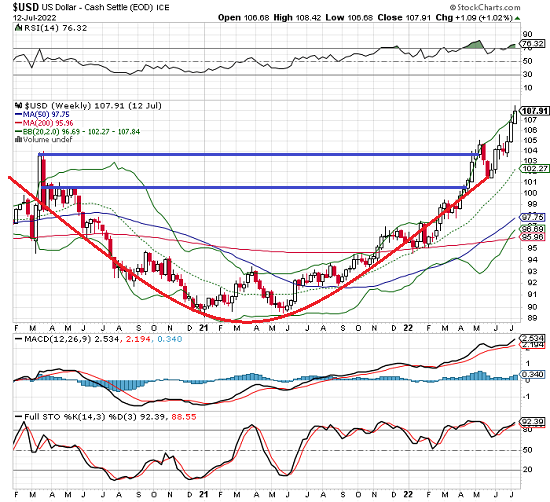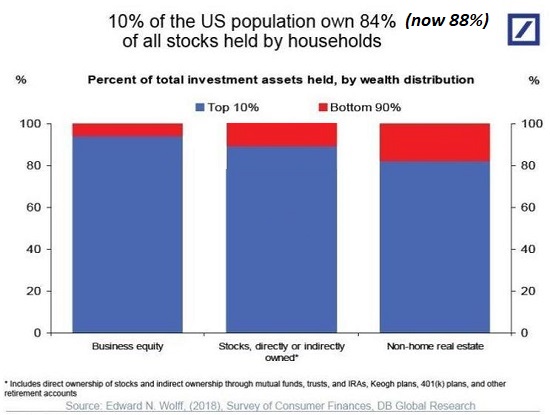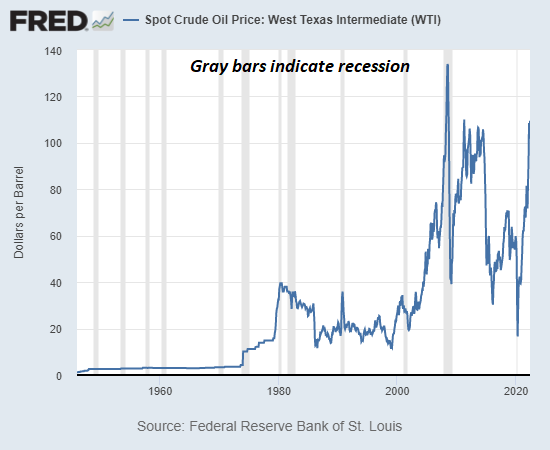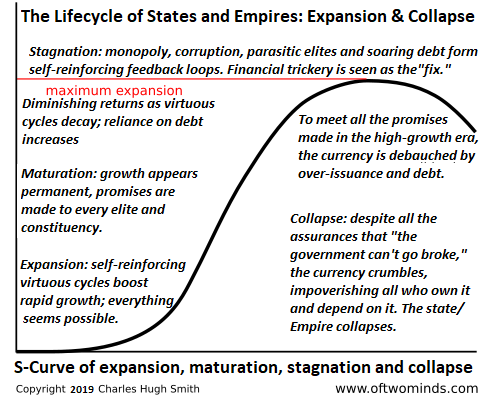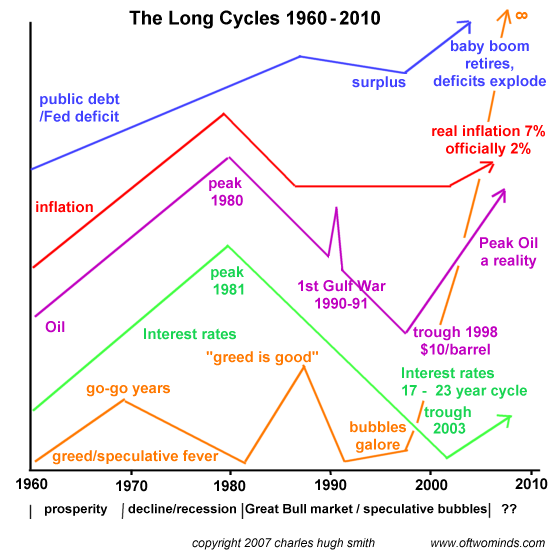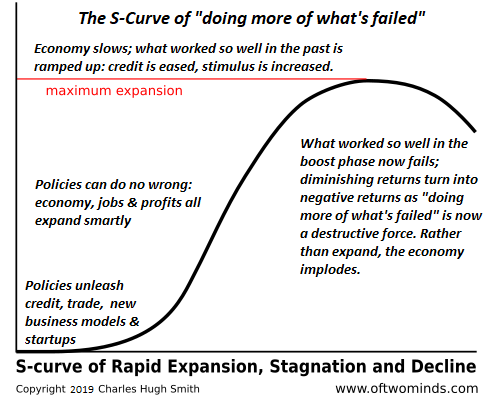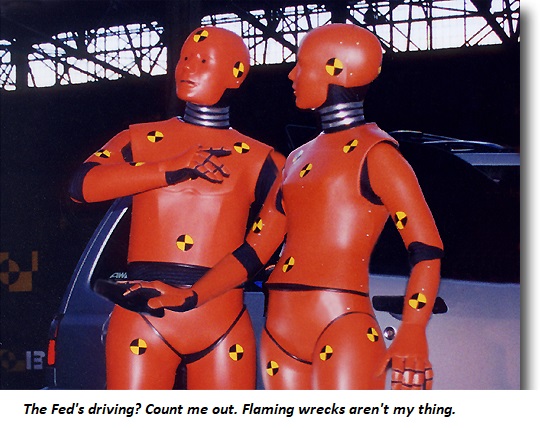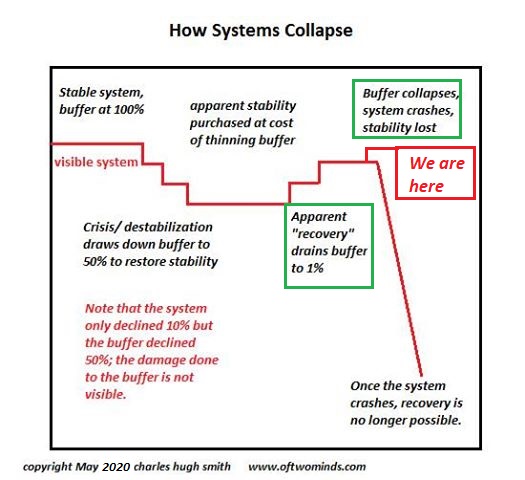How unintended can these consequences be? My guess: not very. A great many people got the U.S. dollar trade wrong. The conventional view held that “printing money”, i.e. expanding the supply of money, would automatically devalue the currency. It isn’t quite so simple, it seems. It depends on where the newly issued money ends up, whether the economy is expanding along with the money supply, the relative perception of the currency’s stability / safety, the returns being offered in interest and capital gains for those holding assets denominated in the currency and in the broadest sense, the stability, transparency and adaptability of the nation / entity issuing the currency. As I keep noting, there are rather high bars to establishing a truly global currency: 1) The
Topics:
Charles Hugh Smith considers the following as important: 5.) Charles Hugh Smith, 5) Global Macro, Featured, newsletter
This could be interesting, too:
Nachrichten Ticker - www.finanzen.ch writes Die Performance der Kryptowährungen in KW 9: Das hat sich bei Bitcoin, Ether & Co. getan
Nachrichten Ticker - www.finanzen.ch writes Wer verbirgt sich hinter der Ethereum-Technologie?
Martin Hartmann writes Eine Analyse nach den Lehren von Milton Friedman
Marc Chandler writes March 2025 Monthly
How unintended can these consequences be? My guess: not very.
A great many people got the U.S. dollar trade wrong. The conventional view held that “printing money”, i.e. expanding the supply of money, would automatically devalue the currency.
It isn’t quite so simple, it seems. It depends on where the newly issued money ends up, whether the economy is expanding along with the money supply, the relative perception of the currency’s stability / safety, the returns being offered in interest and capital gains for those holding assets denominated in the currency and in the broadest sense, the stability, transparency and adaptability of the nation / entity issuing the currency.
| As I keep noting, there are rather high bars to establishing a truly global currency:
1) The currency floats freely on all global markets, i.e. it isn’t pegged to any other currency. 2) The currency and financial assets denominated in the currency, are extremely liquid, so it supports global markets for securities, debt, commodities, etc., in which anyone anywhere can trade in size at any time. 3) These global markets are transparent, meaning the market and governance mechanisms are visible to all and are not subject to overnight devaluations, expropriations, capital restrictions, etc., by opaque authorities. 4) The currency is supported by a diverse economy that is not dependent on exports or imports for its fundamental stability and well-being. 5) The issuing nation guarantees ease of flow: capital, talent and enterprises all have essentially unlimited freedom of movement within the issuing nation / entity’s borders. 6) The official exchange rate and the street / black market exchange rate are virtually identical. 7) Sufficient issuance of cash to be a store of value and means of exchange everywhere. What currency is being preserved in a plastic ziplock bag in remote trading posts? That currency is the true reserve currency. Everything else is a derivative. Systemic stability flows from transparency and adaptability. A rigid command-control economy’s stability is paper-thin because it’s a manifestation not of strength but of fragility and fear: fear that if the shackles are released and markets are finally free to discover price, the entire system will collapse under its own weight. Which brings us to the U.S. dollar, which has been gaining purchasing power. The conventional view holds that this is the result of the Federal Reserve raising interest rates and slowing the expansion of the money supply to combat rising inflation. |
|
| But this focus on the domestic economy overlooks that the Federal Reserve is also a central bank for the entire global economy. Many of the backstops and guarantees the Fed issued to “save the world” in the Global Financial Meltdown of 2008-09 were issued to non-U.S. banks.
This sets up the question: are the global knock-on effects of USD strength merely “unintended consequences” of domestic policies or are they “The Empire Strikes Back”? The consensus holds that the USD’s crushing of other currencies is nothing more than an unfortunate unintended consequence of Fed tightening. This blindness to the Fed’s global role is striking. Does the Empire really not anticipate the global consequences of strengthening its currency? Or is the domestic bias in the analysts rather than the Empire? Unintended consequences or The Empire Strikes Back? The foundation of global influence and power is the currency issued by a nation or entity. Everything flows from that. Pegs and official exchange rates are signs of systemic weakness, that the authorities know the market won’t place the desired value on the currency. But markets discover price regardless of pegs and official FX rates. A currency that trades transparently on global markets is valued by market participants. This value/price is trustworthy. Values set by artificial pegs and official exchange rates are not trustworthy because these artifices can be changed overnight by opaque authorities. How unintended can these consequences be? My guess: not very. Technically, the USD has carved out a classic rounding bottom and broken above recent resistance levels. Is this the end of USD strength, or merely Stage I in a much larger-scale process of Core and Periphery playing out? My guess is it’s a much larger-scale process of Core and Periphery playing out. Time will tell. |
Tags: Featured,newsletter

